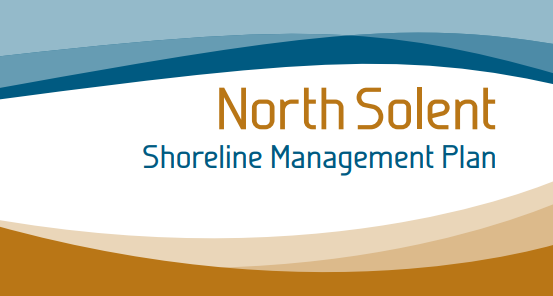Appropriate Assessment - explanations
To view the Final Assessments please select Final North Solent SMP and select the relevant appendix and annex
Explanation of 'Assessment of Likely Significant Effect'
Any plan or project not directly connected with or necessary to the management of a European site will be subject to an AA.
After it has been agreed with NE that the North Solent SMP is not necessary to the management of the European sites (SAC, SPA or Ramsar), the SMP will be tested to identify whether it is likely to have a significant impact on the integrity of a European site either alone of in- combination with other plans and projects.
This is referred to as the screening stage in the AA process and a precautionary approach is taken, if significant effects are likely to occur, then subsequent steps in the AA process are required.
Explanation of in-combination assessment
The Habitats Regulations provide the requirement for an 'in-combination' assessment to determine the likely significant effects of a plan or project, alone and in- combination with other plans and projects.
This includes other approved projects and plans and those yet to be implemented in and around the SMP area.
The SMP is a strategic document therefore plans and projects within the north Solent SMP area which will be considered in the 'in-combination' assessment include both strategic documents and major developments.
Explanation of imperative reasons of overriding public interest (IROPI)
If the AA concludes that the SMP is considered to have an adverse effect on the integrity of a European site and there are no alternative solutions or preventative measures, there may be a need to approve the SMP for 'imperative reasons of overriding public interest' as outlined in Article 6 (4) of the Habitats Directive:
'If, in spite of a negative assessment of the implications for the site and in the absence of alternative solutions, a plan or project must nevertheless be carried out for imperative reasons or overriding public interest, including those of social or economic nature, the member state shall take all compensatory measures to ensure the overall coherence of Natura 2000 is protected.'
The SMP has been judged against the following guiding principles to assess whether due to reasons of overriding public interest the SMP should be approved despite adversely affecting a European site:
- Serious risk to human health and public safety
- Interest of national security and defence
- A provision of a clear and demonstrable direct environmental benefit on a national or international scale
- A vital contribution to strategic economic development or regeneration
- Where failure to proceed would have unacceptable social and/or economic consequences
- In addition to the guiding principles the relative importance of the SAC or SPA within the Natura 2000 Network will be considered in addition to the long-term interest and regional importance of the SMP.
Explanation of Compensatory Measures
Where the AA for the SMP cannot conclude that there will not be an adverse affect on a European site but the scheme has been permitted for reasons of overriding public interest, then compensatory measures must be secured to ensure that the overall coherence of the Natura 2000 network is protected.
These compensatory measures need to provide the ecological functions of the affected sites and are likely to include habitat creation to offset or replace habitat losses.
Replacement habitat should ideally be sought firstly within the European site or close to the affected site, where this is not possible a regional approach can be taken and habitat can be secured through the EA Regional Habitat Creation Programme.




